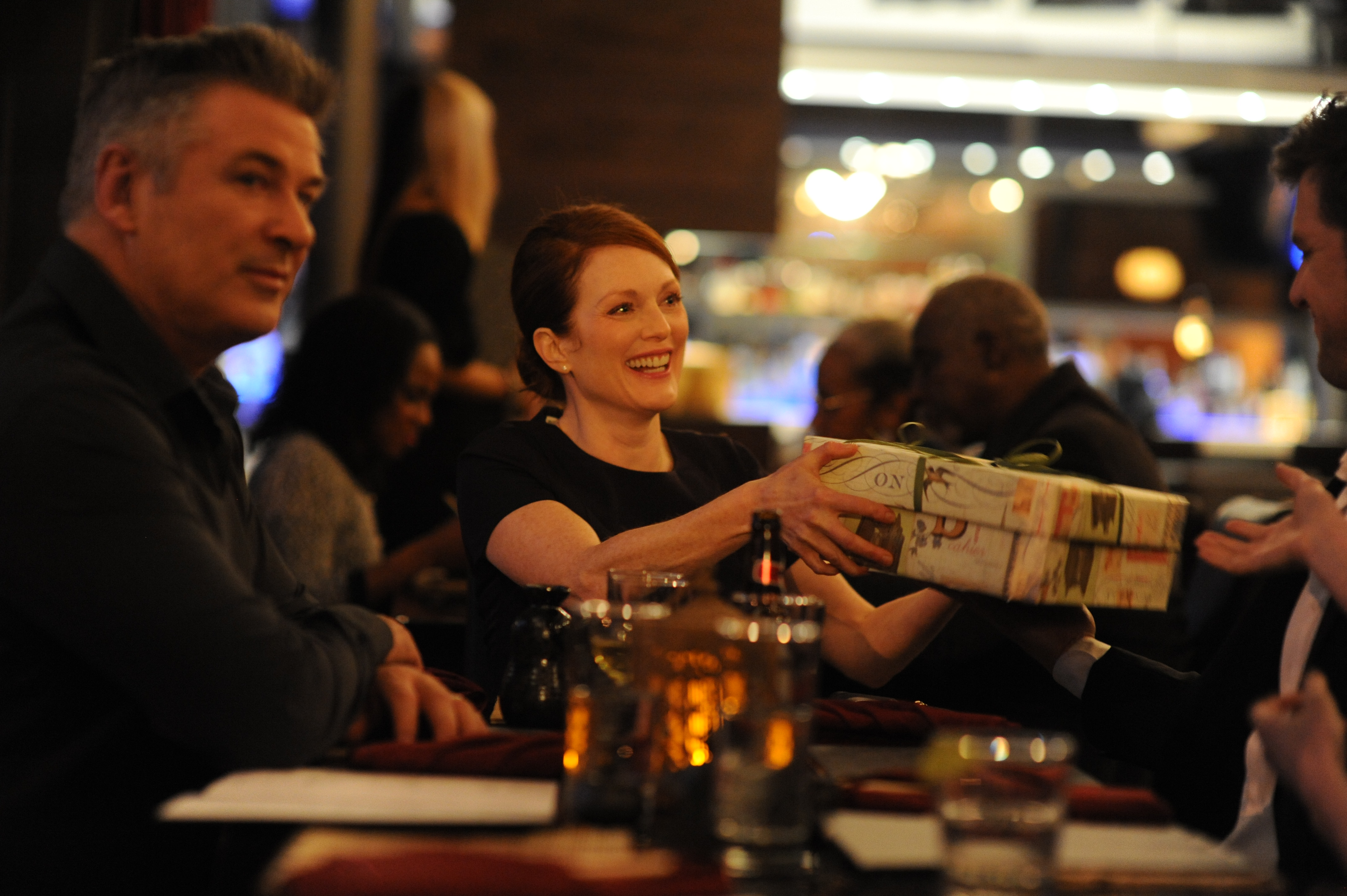If the Oscars this year go to Eddie Redmayne for ALS (in The Theory of Everything) and Julianne Moore for Alzheimer’s here, I hate to think what the next few seasons may bring at the movies. James Franco with bovine spongiform encephalopathy? Robert Downey Jr. with ebola? Reese Witherspoon with CP? I don’t want to say that the impairments of My Left Foot, Iris, and The Diving Bell and the Butterfly are diminishing the choices for awards-hungry film stars and enthusiasm among their fans, but medical case studies do not good movies make.
Still Alice is adapted from the 2007 bestseller by Lisa Genova, a neuroscientist turned novelist, who depicted Alzheimer’s mostly from her heroine’s perspective. For the reader, and now moviegoer, this is like experiencing only the second half of Flowers for Algernon: high-functioning start as Columbia professor, wife, and mother of three grown children; then after diagnosis at age 50, the brutal, inexorable mental degradation and loss of self. Here, thankfully, Alice isn’t our narrator, so we’re spared the spectacle of Moore—overdue for an Oscar in one movie or the next—beseeching us directly for hope where there is none. An academic, Alice tries to prepare clinically for her deterioration. (This comes 30 minutes in, after diagnosis and the movie’s only big weepy explosion—the scene they’ll undoubtedly excerpt at the Oscars.) Alice plays word games and self-tests her memory. She types constant reminders into her iPhone, which soon becomes her adjunct memory and, eventually, her intellectual superior—even the auto-correct feature seems poignant. And finally she records a video on her laptop addressed to her future self, conveying detailed instructions, that will later allow Moore to play both sides of a scene with herself: crisp professionalism versus foggy incomprehension.
Directors Richard Glatzer and Wash Westmoreland (Quinceanera) mostly avoid the sap, despite the score’s twinkly piano pathos. The movie skips forward by months, so each new cognitive loss comes as a surprise—both for us and Alice, so long as she’s able to perceive them. The filmmakers do add gauzy, sunny beach flashbacks to soften the sting, but mainly we’re left with the relentlessly linear narrative of decline, which isn’t very interesting to watch. (In Hollywood, Alzheimer’s isn’t so fruitful a disease as, say, bipolarity or alcoholism.) There’s a bit of tension as her family—led by husband Alec Baldwin, playing a fellow Ph.D.—tries to cope with Alice’s predicament, yet the Howlands’ rifts aren’t terribly dramatic either. Moore is more compelling early, when Alice can articulate her plight (“I wish I had cancer. I wouldn’t feel so ashamed”). Then the actress gradually sheds her high craft and intelligence, becoming a lump. More sincere than convincing, Still Alice is the rare picture that earns plaudits for its star dimming, not glowing. In a real sense, Moore gradually disappears from her own movie.
What sticks with you most here are the sad practical details—there aren’t enough—of Alice and family navigating their way into darkness: the precious iPhone misplaced in the freezer; a nursing-home guide assuming that Alice is shopping for a bed for her parent, not herself; and a dropped sheaf of lecture notes when Alice addresses an Alzheimer’s support group. Not only does her screen audience gasp, but we do, too, as the papers flutter to the floor with the impact of a collapsed building. Moore has been in better malady movies (specifically Safe), but her recessive performance gains weight—as does the film—owing to the baby-boomer dread of aging and Alzheimer’s. Besides the disease, there’s the fear of becoming one’s parent.
bmiller@seattleweekly.com
STILL ALICE Opens Fri., Jan. 30 at Sundance, Lincoln Square, Meridian, and Guild 45th. Rated PG-13. 99 minutes.








